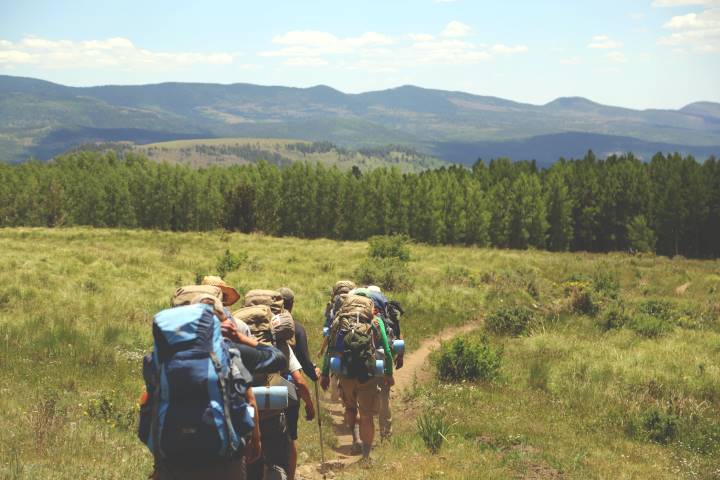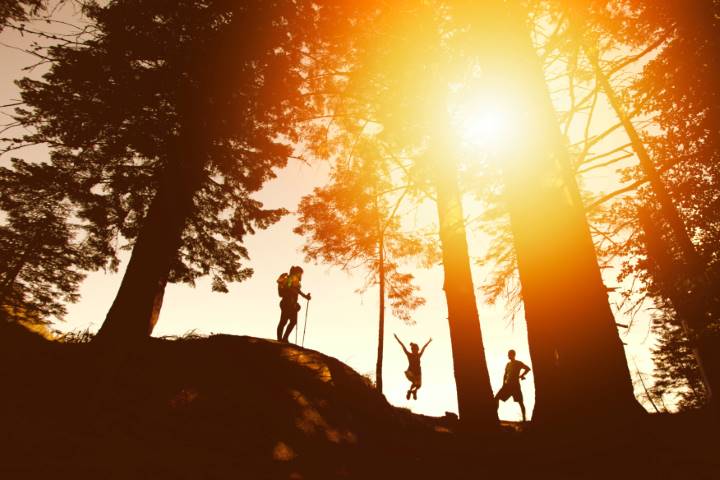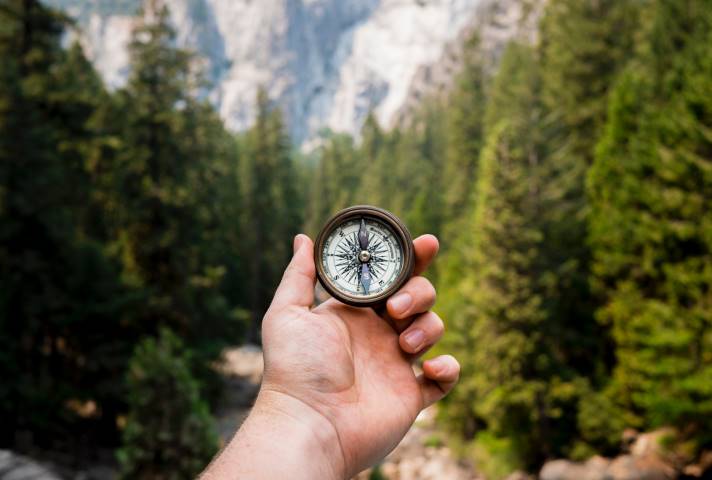Whether you are a casual hiker who likes to go for a nice Sunday stroll or a hardcore hiker who goes for days at a time, certain items are must-haves for every type of hiker. What you carry in your backpack can make a huge difference, so make sure that you pack wisely. If you are not sure what to bring or you want to refresh your hiking backpack, here is a list of 8 essential things that every hiker should have.

- Sunscreen And Protection
Let’s start with the basics, you always need to pack sunscreen with you when going on a hike. Even if it is raining and the weather predicts no sun, the problem is that you never know when the weather can change! It is unpredictable, and you do not want to get caught out in the open sun with no shelter.
Along this train of thought, it is also important you pack sunglasses, a hat and any other protective clothing you want. Buying good quality sunglasses can be an expensive ordeal, we recommend that you click here for coupons and cashback that can help you get a protective pair of sunnies that won’t leave a hole in your wallet. Sunglasses are more important than you might think as they protect your eyes from potentially damaging radiation.
- Plenty Of Water
You should never take chances with how much water you pack on a hike. Hiking can take a toll on your body and the more you sweat, the more water you need to replace the fluids being lost. You should bring a method/ tool to purify water, for example, a Life Straw or a water filter bottle. This allows you to drink any water you find out on your hike because you can filter it before consuming it, which is incredibly helpful when your water bottle runs dry.
Your body needs around half a litre of water per hour when hiking in moderate temperatures, so bear that in mind when considering how much you need to bring with you. Remember, you always want to be prepared for an emergency, and water is high on the priority list.

- A Headlamp
Bringing tools such as a torch and headlamp is so important for a hiker. You might think a headlamp is unnecessary if you have a torch, but imagine it is late at night and you need to make your way to the toilet, the last thing you will want to do is navigate this process while trying to hang onto a torch. A headlamp provides you with light and is a hands-free illumination tool that will make your life far easier, whether you are cooking, walking in darker conditions or even just reading a map. Be prepared and always carry extra batteries so you are prepared if your headlamp cuts out on you mid-trip.
- Navigation Tools
Packing navigation tools is absolutely essential for every hiker, even if you think you know the way or that it is a short hike, you never know what can happen and it is easy to go off-trail. If you prefer to do things the traditional way, you might want to consider packing a map and a compass to help you stay on track. The benefit of using a standard compass as opposed to a compass app on a phone is that it will never die on you! You do not have to charge your compass like you would a phone, and they weigh next to nothing, making them an ideal tool to carry.
Alternatively, you can use a GPS device, which shows you your location on a digital map. They are designed for outdoor use, so they are durable and can survive the worst of weathers. Some hikers opt to use a GPS in their phone, as that means there is less to carry, however, dropping your phone could be disastrous and you will also have to pack a portable charger to make sure it can last.

- A First Aid Kit
A first aid kit should always be high on the priority list for a hiker. Injuries can occur very easily whether you roll an ankle or have an allergic reaction from a plant, there is no predicting what can happen and so you should cover all grounds. A first aid kit should contain bandages, pain killers, ointment, gauze pads, adhesive tape, disinfectant and gloves. How much you put in your first aid kit will depend on how long your trip is and how many people are going with you. Also, if you have the room it is a good idea to carry a small information guide on how to deal with common medical emergencies.
- Nutrition
Packing food that is nutritious and will give you energy and sustain you is very important, particularly for longer hikes. Pack items that won’t melt or burst in your bag, for example, energy bars, protein bars, nuts, dried fruits and jerky are ideal snacks to keep you going. Always bring more than you think you need because an injury or bad weather could end up prolonging your hike. If you are hiking in a group, consider meal/snack planning and be mindful of allergies. It is better to be safe than sorry, so always bring more food, even if that means extra weight in your bag.
- Fire Starter Kit
To be prepared for any kind of emergency you should be equipped with a fire starter kit. This can include bringing a lighter, matches and heat nuggets to help you quickly start a fire even in wet conditions. You don’t have to be a professional to be able to start fires, and there are lots of tools and kits that make it easy for all.
- Insulation
Staying warm is vital and so you should always pack extra layers and clothing to make sure that you don’t get caught out in the cold. Conditions can change rapidly, so you may have left for your hike in the midday sun but if the rain and wind arrive, you want to be prepared for this. Bring clothing to keep extremities warm, for example, a hat, socks, gloves and a windproof jacket.
So, with these 8 essential hiking items, you will be set for any and every hike regardless of the weather conditions.





